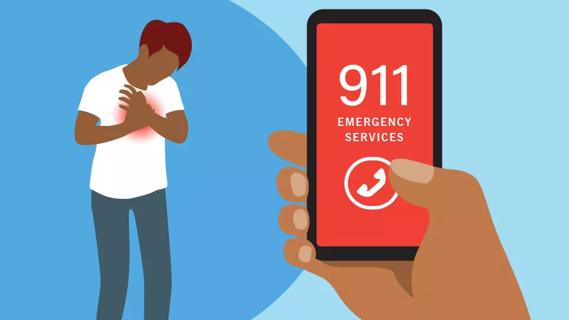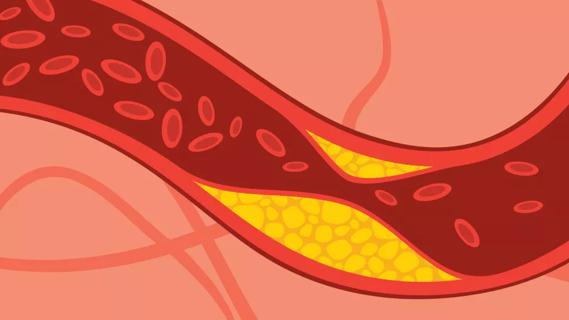Advertisement
Knowing what you can do to prevent or manage heart disease is half the battle

Your older sister has high cholesterol and high blood pressure. Your dad had a heart attack at age 50. And now, as you’re staring down adulthood and the rest of your middle ages, you’re wondering: Should I be worried?
Advertisement
Cleveland Clinic is a non-profit academic medical center. Advertising on our site helps support our mission. We do not endorse non-Cleveland Clinic products or services. Policy
Family history of heart disease definitely factors into your story, says cardiologist Christine Jellis, MD, PhD. And it’s something you and your healthcare providers should consider when determining your risk for heart disease. Family history isn’t the only character in this tale, though. Many other factors play a big role in keeping your heart healthy.
Dr. Jellis explains how to make the most of your family history, along with things you can do to prevent the onset of heart disease.
Your family history is a record of diseases and conditions in your immediate and extended biological family. Your family history also accounts for other things that impact your health, like lifestyle and behavioral patterns related to exercise and nutrition or the environment in which you and your family members live.
You want to keep a record of these details because if a close family member has had a condition or chronic disease, that will often increase your risk of developing the same condition. That risk is then escalated even further if more than one family member has had the condition or if signs and symptoms developed at an earlier age. All of this is possible because of specific gene mutations in your DNA. So, it’s important to have your family review medical records and death records and have conversations about family health history early on.
When it comes to your heart, you’ll want to look for a family history of cardiovascular diseases and other heart-related issues or conditions that may run in your family. Having this information can be a big step in preventing heart disease in the future. Some of the heart-related issues you want to look for in your family history include:
This list, though long, still doesn’t include everything that plays a part in your inherited risk for heart disease, but it certainly offers a good starting point. When you know your family history, you’ll want to share that information with your primary care physician or other healthcare providers if you’re concerned about your heart health. They can then put you in touch with a cardiologist who can use your family history alongside other testing to calculate your risk for developing heart disease and to determine your heart’s health at any stage.
Most commonly, when people talk about heart disease, they’re usually referring to coronary artery disease — the most common type of heart disease that causes more than 370,000 deaths in the U.S. each year.
Advertisement
Coronary artery disease begins when plaque builds up in the walls of your arteries that feed blood into your heart. As your arteries get narrower, blood has a harder time sneaking through. This can lead to heart attack or stroke.
Because it’s so common, it’s not unusual to have a family member who’s been diagnosed with coronary artery disease. This doesn’t mean you need to panic. But it’s certainly worth noting.
“You are at increased risk if you have a parent or sibling with a history of heart disease before age 55 for males or 65 for females,” Dr. Jellis says. If that describes you, she recommends seeing a cardiologist sooner rather than later. They have the experience to weigh all the various risk factors — and craft a treatment plan that will help you bring that risk down.
While family history matters, your parents’ fate is not your own. Heredity is just one checkmark on a long list of risk factors. And that’s good news, as many of those factors are things you can manage.
“You can’t change your family history, but you can take steps to change those other factors,” Dr. Jellis reiterates.
These lifestyle changes can help protect your heart:
Advertisement
There’s one last thing you can do, too: Avoid blaming yourself, your parents or other family members. No one asks to be born with their inherited family history, but knowing what’s at stake can at least give you the tools you need to take action and prevent some of the worst-case scenarios. Your heart — and your family — will thank you for doing what you can.
Advertisement
Learn more about our editorial process.
Advertisement

Obesity, age and preexisting heart conditions can all raise your risk of cardiovascular disease during pregnancy

Walking is a great goal, but how many steps are best for you depends on factors like your fitness level and age

Research shows a strong association between rheumatoid arthritis and heart issues

Eating more natural, whole foods can lower your risk of heart and cardiovascular diseases

There’s no way to stop it once a heart attack is happening, but the most important thing you can do is to call for help

You can counter the risk of prediabetes-related heart attack or stroke by eating more fruits, vegetables and whole grains, as well as exercising regularly

Age, sex and genetics are just a few factors that can affect your risk of developing coronary heart disease

LDL cholesterol and lipoprotein (a) cholesterol are more likely to stick to your arteries and lead to dangerous heart events

Focus on your body’s metabolic set point by eating healthy foods, making exercise a part of your routine and reducing stress

PFAS chemicals may make life easier — but they aren’t always so easy on the human body

While there’s little risk in trying this hair care treatment, there isn’t much science to back up the claims